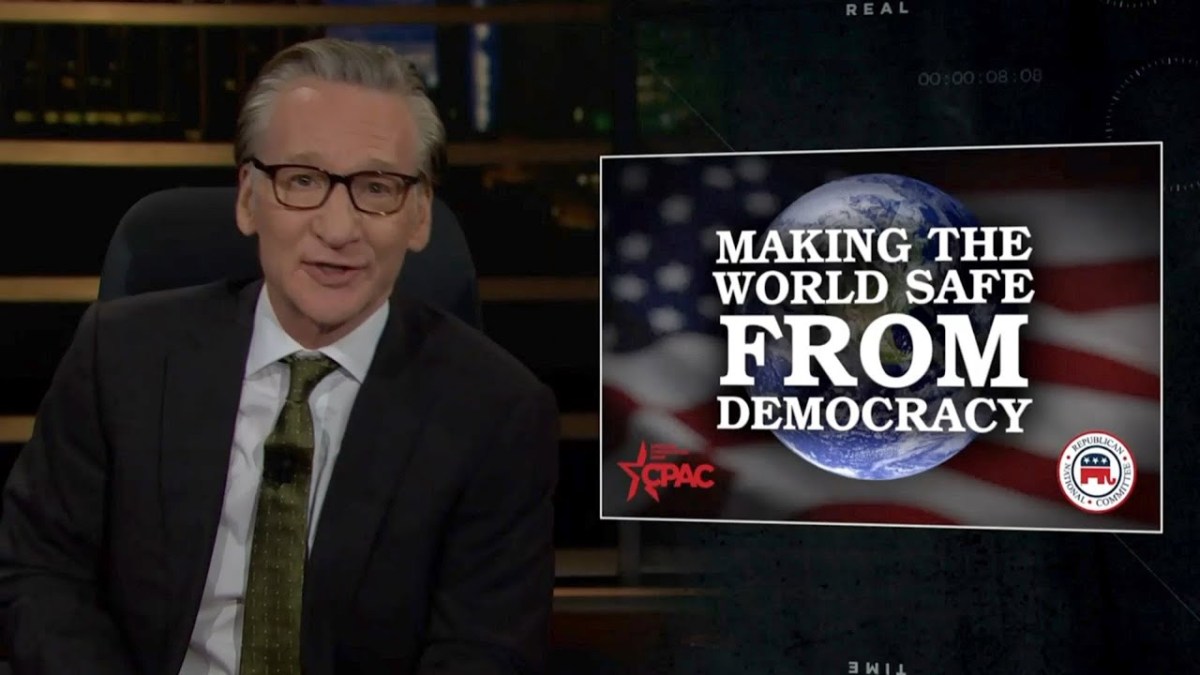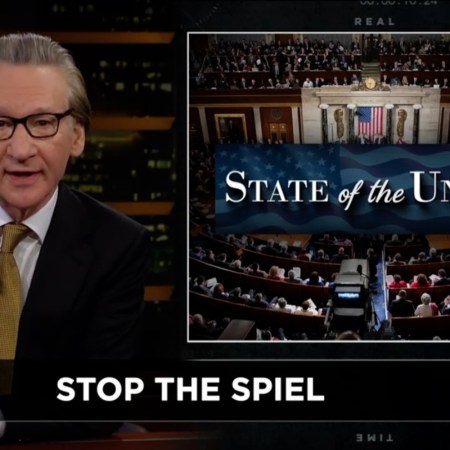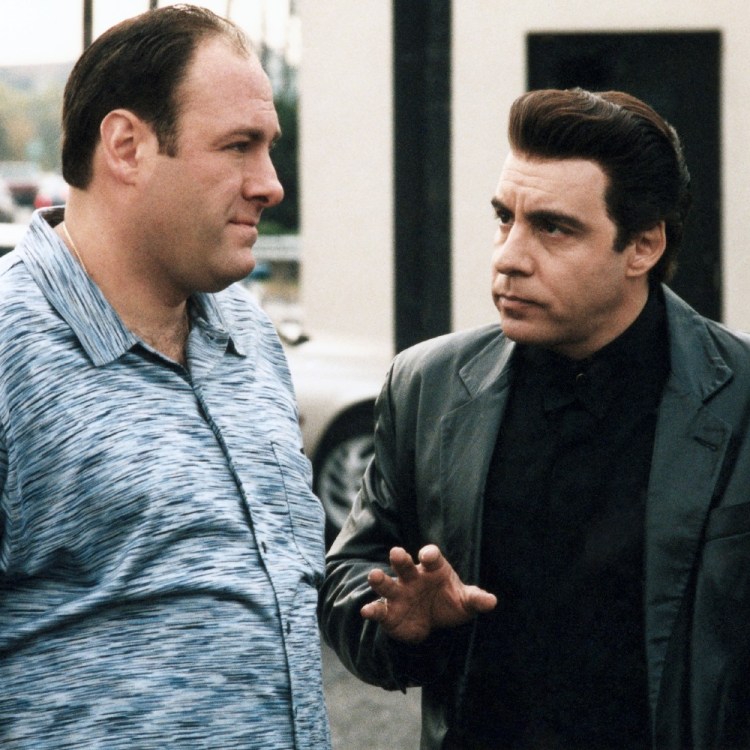Sometimes the state of the world is strange enough that merely recounting current events can do the bulk of a comedian’s job for them. Such was the case when Bill Maher delivered his opening monologue for the latest episode of Real Time With Bill Maher. The fact that there’s now an anti-violence policy at the Tony Awards, for instance, prompted Maher to quip, “Any sudden movements? It’d better be jazz hands.”
The news on its own made for a number of “can you believe this?” punchlines — from the legal conflict between Johnny Depp and Amber Heard trial to Tucker Carlson’s commentary on testicular tanning. And Ted Cruz’s recent comments about Disney cartoons — the kind of statement that’s effectively catnip for comedians — led into an extended riff on theme parks.
The evening’s first guest was Bob Odenkirk, who mentioned that Maher had been a big supporter of Mr. Show during its time on the air. Maher spoke about the connective tissue between sketches on Mr. Show. Odenkirk cited one of said show’s big influences, saying, “We were trying to copy [Monty] Python, though they had Terry Gilliam’s animations.”
From there, Maher brought up the number of talented comics who had (like Odenkirk) worked on Saturday Night Live over the years but aren’t necessarily known for it. “I think I’m particularly dangerous and intelligent,” Odenkirk said. He spoke of the particular “demands and needs” of working on SNL, and referred to it as a significant learning experience for him.
The two men then discussed the role of anger in comedy. Odenkirk mentioned that he “couldn’t handle the confrontational nature” inherent in stand-up comedy. Maher shared a memory of the time a routine of Odenkirk’s almost killed him in Aspen — the idea of God as Robert Evans.
In the last part of the interview, the two men spoke about Odenkirk’s recent memoir. Maher expressed surprise that both of them are now are at an age to, as he phrased it, “impart wisdom.” For his part, Odenkirk described the book as being about “making your way and not quitting.” This, in turn, led to him sharing the story of his getting cast as Saul Goodman — and, more broadly, the phenomenon of comedians being cast in dramatic roles.
The evening’s panel discussion found Maher joined by writers Maty Katharine Ham and Caitlin Flanagan. They discussed the end of in-flight mask mandates — but also the way that various pandemic responses have become politicized. That, in turn, led the group to talk about shifts in messaging since the pandemic began, and the way that’s led to a loss of faith in institutions. From there, Maher shared an account of a recent visit to a mall where, in his words, “I felt like the mermaid from Splash.”
Eventually, the group returned to the theme of political polarization — what Maher dubbed “Red Team, Blue Team.” Talk quickly turned to the situation Disney is currently in, with Maher noting that he felt bad for Disney. “And they fired me once! I have every reason to hate them!” Flanagan was more critical of Disney — which has, historically, been supportive of LGBQT+ rights over the years — for not taking a stand and pushing back against the “Don’t Say Gay” bill from the start.
Florida’s recent decisions surrounding math textbooks were also discussed. Flanagan cited her own background in education and her frustration with how students are currently doing on standardized tests. For her part, Ham argued that the delays in in-person learning during the pandemic were responsible.
Overtime began with Maher and Flanagan revisiting a Johnny Carson bit, before discussing Joe Biden’s approval ratings. Inflation and education both came up; Ham revisited her issue with virtual learning, which she cited as a reason for several recent political flashpoints.
New Rules initially found Maher returning to a topic he’s raised earlier in the episode. “Johnny Depp is an award-winning actor,” he said. “He’s got to figure out how to look less totally and utterly guilty. Here he is in court, dressed like a Mafia don who just burned down a biker bar.” Also up for discussion were nausea caused by eating Lucky Charms and online porn with overly descriptive titles. The bulk of the segment, however, focused on the GOP turning away from democracy. “Heads we win, tails we coup,” Maher said.
Maher made the case that the differences between the nation’s two major political parties is larger than it’s ever been. “Democrats, for all their flaws, still see democracy as the essence of America.” For Republicans, he argued, that was less true.
“This is a true sea change,” Maher said, and pointed to Republicans working to make it harder for people to vote as evidence. Does democracy have flaws? Yes, Maher said — and cited Churchill’s “it’s the worst system, except for all the others” comment. Ultimately, it was one of Maher’s stronger segments of its type this season — clear-headed in its reasoning and ominous in its implications.
Thanks for reading InsideHook. Sign up for our daily newsletter and be in the know.


















